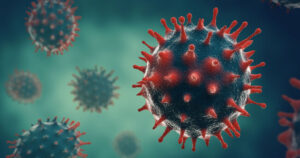DOES SUGAR FEED CANCER?
There are sensationalist media reports and articles on the Internet about the supposed link between sugar and cancer. However, these articles merely spread misinformation and anxiety. The undeniable truth is, every cell in our bodies needs sugar, in the form of glucose, for energy.
There is no way to completely avoid sugar. Everything we eat, from every slice of bread to every bowl of rice, will be broken down by our digestive systems into simple sugars for our cells to use as energy. Sugar is not some demon to avoid. Sugar fuels the growth of both normal cells and cancer cells. Without this fuel, every cell, cancerous or healthy, will starve and die. At that point it’s a race to the finish line—what will kill first? The cancer or the starvation?
As a start to a healthy diet, we need to look closely at the foods we eat. Some people avoid eating carbohydrates, such as bread, rice, and pasta. However, Cancer Research UK has noted that severely restricted diets, such as low-carbohydrate diets, can actually damage health in the long-term, and in cancer patients, can negatively affect their recovery or even be life-threatening.
Recommendations to cut down or avoid sugar really means to avoid empty calories. Empty calories are calories that provide only energy and no nutritional value. For example, soda contains empty calories—when you drink soda, your body is getting only excess sugar and no nutrients. Empty calories are bad because excessive calories lead to weight gain, which increases the risk of multiple diseases, including cancer.
The U.S. Centers for Disease Control and Prevention (CDC) states that cancers associated with obesity make up about 40% of all cancers diagnosed in the United States. Obesity also affects our immune systems, leading to an increased susceptibility to both bacterial and viral infections. To stay healthy, we need to nourish our immune systems. Without our immune systems, we have no way of killing cancerous cells in our bodies before they multiply and form tumors. Our immune systems and our healthy cells keep cancer at bay and keep our bodies in tip-top shape. Our immune cells, like every other cell, need sugar for energy.
HOW CAN WE KNOW FOR SURE THAT SUGAR DOESN’T CAUSE CANCER?
It takes a professional in the field to interpret research data in a meaningful way. For example, research done in a laboratory shows that cancer cells consume more sugar compared to normal cells. Reporters extrapolate from this tidbit of information and conclude that you can “starve” cancer cells by avoiding sugar. This is not true. What happens in laboratory petri dishes doesn’t always happen in humans. In fact, about 90% of experimental drug trials fail in human clinical studies. There is no clinical research that shows sugar causes cancer.
World-renowned Mayo Clinic has stated that “sugar doesn’t make cancer grow faster…giving more sugar to cancer cells doesn’t speed their growth…depriving cancer cells of sugar doesn’t slow their growth.” All cells, including cancer cells, need glucose for energy. However, consuming excessive amounts of sugar is bad for you because it can lead to obesity, which, in turn, increases your risk of other diseases.
Cancer Research UK has stated that “there’s no way of telling our bodies to let healthy cells have the glucose they need, but not give it to cancer cells. There’s no evidence that following a ‘sugar-free’ diet lowers the risk of getting cancer, or boosts the chances of surviving if you are diagnosed.”
The U.S. National Cancer Institute has stated that “no studies have shown that eating sugar will make your cancer worse or that, if you stop eating sugar, your cancer will shrink or disappear.”
IS IT TRUE THAT DIABETICS CAN’T HAVE SWEET FOODS?
Diabetics need to be concerned about the glycemic index of a food, not how sweet a food tastes.
The glycemic index is a ranking of foods on a scale of 0 – 100 according to the extent to which they raise blood sugar levels. Diabetics should eat foods with a low glycemic index and avoid foods with a high glycemic index.
Let’s look at some examples:
| Food | Glycemic Index |
| White Rice | 88 |
| Brown Rice | 59 |
| Sucrose | 66 |
| Fructose | 23 |
| Glucose | 100 |
White rice is not sweet, yet, it has a high glycemic index of 88, meaning it will cause a spike in blood sugar levels. Brown rice, on the other hand, only has a glycemic index of 59, so it will cause a lower and slower increase in blood sugar levels than white rice. This is because brown rice contains more fiber, and fiber can often help temper sharp increases in blood sugar levels.
Different sugars have different glycemic indexes, with some having very low glycemic indexes.
Diabetics with a sweet tooth don’t need to despair! They just need to plan out their diet with care.
ARE THERE CERTAIN FOODS DIABETICS CANNOT EAT?
Most foods are broken down into sugar in our bodies, so if diabetics are trying to avoid sugar, then strictly speaking, they wouldn’t be able to eat anything. Any food eaten will increase their blood sugar levels. It’s not a matter of avoiding sugar or sweet foods, rather, diabetics should take into consideration a food’s glycemic index when planning their diet.
Diabetics’ blood sugar levels are affected by multiple factors, such as the severity of their disease, the type and amount of medication they are taking, their level of physical activity, and the food that they eat. They need to monitor their blood sugar levels closely to plan out a diet suitable for their individual needs and maintain healthy blood sugar levels.
SHOULD WE REPLACE SUGAR WITH ARTIFICIAL SWEETENERS?
By offering all of the sweetness and none of the calories of sugar, artificial sweeteners seemed like they could be the answer to helping people lose weight! Unfortunately, that’s too good to be true. Artificial sweeteners could be costing us our health.
Recent research suggests that artificial sweeteners have unanticipated side effects. For example, research published in Nature shows that trehalose increases the virulence of certain strains of a bacteria, C. difficile, which can cause colitis, diarrhea, and death. This artificial sugar has been used for over a decade with people unaware of this potentially deadly effect.
Research presented at the annual meeting of the U.S. Endocrine Society suggests that consumption of artificial sweeteners, such as sucralose and aspartame, could promote diabetes, especially in people who are already overweight.
Even though artificial sweeteners are often used as a weight-loss tool, Harvard Health has raised concerns that the use of artificial sweeteners could actually increase weight gain.
Studies also suggest that artificial sweeteners, such as saccharin, are addictive. In one done on animal models, researchers found that, when given the choice, rats chose saccharin over cocaine despite being addicted to cocaine.
In summary, artificial sweeteners are a very recent newcomer to human history. We still don’t know how artificial sweeteners will affect us in such large quantities over many years.
Sugar, on the other hand, has always been in our history. Sugar is not inherently bad; it comes down to how we choose to incorporate it into our diet. Sugar in the form of fruits and vegetables is healthy for us, whereas sugar in the form of candy or soda is always unhealthy.
Source: Dr EE Zhang, eLead Global, EExplanation, Sugar




